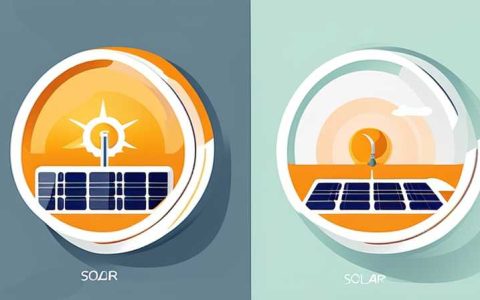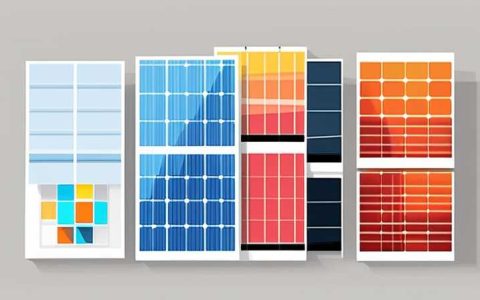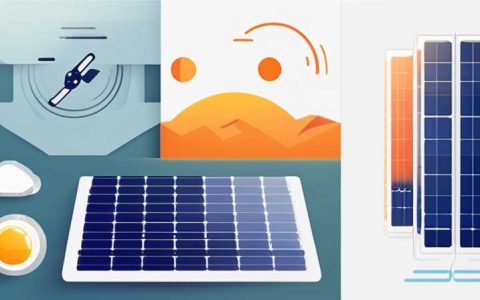
1. Investing in solar energy offers significant financial benefits, environmental advantages, and contributes to energy independence. 2. Financial savings can be achieved through reduced energy costs and potential tax incentives. 3. Environmental impacts include lower carbon emissions and decreased fossil fuel reliance. 4. Energy independence lessens vulnerability to fluctuating energy prices and geopolitical tensions. Elaborating further, purchasing solar panels leads to sustainable energy production, which directly translates to decreased electrical bills, making it an attractive long-term investment. Homeowners and businesses can generate their electricity, giving them control and stability over energy costs while safeguarding against inflation and energy price volatility.
1. FINANCIAL BENEFITS
Investing in solar energy systems provides substantial financial returns over time. One of the most compelling reasons for transitioning to solar is the long-term savings on electricity bills. Many households experience a decrease of 50% or more in their monthly energy costs. By offsetting a significant portion of their energy needs with solar power, homeowners can enjoy greater financial flexibility and allocate funds to other necessities or investments.
In addition to immediate savings, potential tax incentives significantly bolster the financial appeal of solar technology. Government agencies often provide rebates, grants, and tax credits to individuals and businesses implementing solar energy systems. One of the most notable incentives is the federal solar tax credit (ITC), which allows homeowners to deduct a percentage of solar installation costs from their federal taxes. This reduces the upfront capital required to install solar panels, making it more accessible for a broader range of consumers. The combination of tax benefits and energy savings can lead to quick return-on-investment periods, sometimes within five to seven years.
2. ENVIRONMENTAL IMPACT
Adopting solar energy has profound implications for the environment. By harnessing the sun’s power, households and businesses can decrease their carbon footprints, directly contributing to climate change mitigation. Traditional energy sources, such as coal and natural gas, emit significant amounts of carbon dioxide and other greenhouse gases into the atmosphere. This contributes to global warming and a host of environmental issues, including air pollution and habitat destruction.
Solar energy systems generate electricity without producing harmful emissions, effectively reducing the reliance on fossil fuels. Moreover, solar power leads to cleaner air quality, which promotes better public health. As communities transition to renewable energy sources, the risk of respiratory diseases and other health problems associated with air pollution diminishes. Furthermore, solar installations can promote biodiversity by reducing the need for extensive infrastructure and land use typically associated with fossil fuel extraction and power generation.
3. ENERGY INDEPENDENCE
Embracing solar power fosters energy independence, allowing individuals and communities to take charge of their energy production. This reduces dependence on external energy suppliers and insulates consumers from global energy market fluctuations. As geopolitical crises can disrupt oil and gas supplies, a decentralized energy system utilizing solar technology provides a layer of security against such vulnerabilities.
Moreover, producing electricity locally empowers communities and enhances the resilience of the power grid. In situations related to natural disasters or supply chain issues, decentralized energy production through solar can facilitate quicker recovery times. This innovation allows communities to maintain power even when traditional grid systems face disruptions, enhancing overall energy security and stability.
4. INCREASING PROPERTY VALUE
The integration of solar panels into residential or commercial properties can significantly enhance property value. Studies have shown that homes equipped with solar energy systems tend to sell at a premium compared to their conventional counterparts. This is attributed to factors such as lowered energy bills, environmental consciousness, and the appeal of modern sustainability features.
Potential buyers increasingly prioritize energy-efficient homes, and those with established solar systems are viewed favorably in the real estate market. A National Renewable Energy Laboratory (NREL) study indicates that properties with solar energy installations receive higher offers and sell faster than homes without such features. As the demand for renewable energy sources escalates, properties equipped with solar panels stand to benefit from evolving market trends favoring sustainability.
FAQs
WHAT ARE THE INITIAL COSTS ASSOCIATED WITH SOLAR ENERGY INSTALLATION?
The initial investment for solar energy systems can be significant, depending on various factors such as the size of the installation, the type of technology used, and local installation costs. On average, residential solar panel systems might range from $15,000 to $30,000 before any tax incentives or rebates. However, this upfront investment is often offset by long-term financial benefits, as homeowners typically see substantial reductions in their monthly energy bills. Financing options, including solar loans and leasing arrangements, have also emerged to make solar more accessible. Many installers offer performance guarantees and warranties, ensuring a return on investment. Additionally, the ongoing decrease in solar technology costs has made it an increasingly attractive option for many households.
HOW DOES SOLAR ENERGY AFFECT ELECTRICITY BILLS?
Transitioning to solar energy can significantly lower electricity bills. By generating power from the sun, consumers reduce the amount of electricity purchased from traditional utility providers. Depending on the size of the solar system and local energy rates, homeowners may see their bills drop by 50% or more. Moreover, through net metering policies, excess electricity produced can be sold back to the grid, further enhancing savings. Over time, this results in substantial savings, often enough to pay off the initial installation costs within a specific period. In regions with high sunlight exposure, savings can be even more pronounced, making solar energy not only an environmentally friendly option but also a financially prudent choice.
WHAT MAINTENANCE DOES SOLAR ENERGY SYSTEMS REQUIRE?
Solar energy systems are generally low maintenance. High-quality solar panels come with warranties of 20-25 years and resist wear from weather elements. Routine maintenance typically involves simple tasks like cleaning the panels to maximize efficiency, which can usually be done once or twice a year depending on environmental conditions. Monitoring the system’s performance can also help detect issues early, ensuring optimal operation. Professional inspections may be recommended every few years to assess the system’s condition and address any potential concerns. The low maintenance requirements contribute to the overall attractiveness of solar energy systems, reinforcing the long-term financial benefits.
FINAL THOUGHTS
Making the transition to solar energy represents not just an embrace of a cost-effective and environmentally friendly energy solution, but also a commitment to fostering sustainability and energy independence. Financial incentives and substantial energy savings create a compelling case for investing in solar technology. Moreover, the reduction in environmental impact underscores the urgency of shifting from fossil fuels to renewable energy sources. As individuals and communities recognize the importance of sustainable energy consumption, the adoption of solar power continues to grow. Beyond financial benefits, solar energy installations can provide stability amidst fluctuating energy markets, which contributes to overall energy security. Furthermore, with rising property values linked to solar adoption, homeowners are increasingly prioritizing energy-efficient options. The journey towards a sustainable future is paved with opportunities for innovation and growth, fundamentally transforming how we view and harness energy resources.
Original article by NenPower, If reposted, please credit the source: https://nenpower.com/blog/why-buy-solar/











